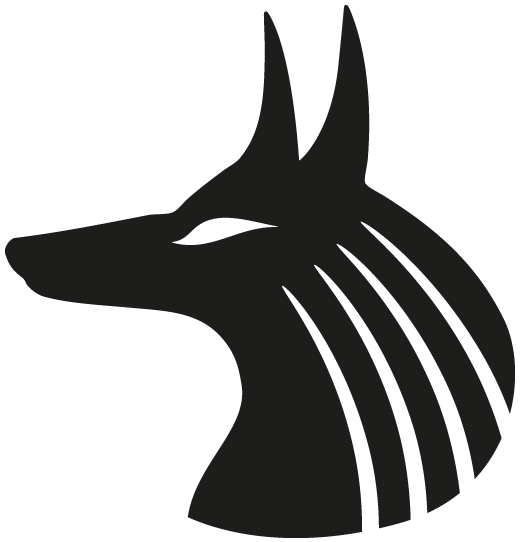A. J. P. Taylor (GBR) * 25.03.1906
â 07.09.1990 (84 let)
WWW strĂĄnky autora
Alan John Percivale "A. J. P." Taylor FBA (25 March 1906 – 7 September 1990) was an English historian who specialised in 19th- and 20th-century European diplomacy. Both a journalist and a broadcaster, he became well known to millions through his television lectures. His combination of academic rigour and popular appeal led the historian Richard Overy to describe him as "the Macaulay of our age".
Taylor was born in 1906 in Birkdale near Southport, which was then part of Lancashire. His wealthy parents held left-wing views, which he inherited. Both his parents were pacifists who vocally opposed the First World War, and sent their son to Quaker schools as a way of protesting against the war. He was educated at various Quaker schools including Bootham School in York. Geoffrey Barraclough, a contemporary at Bootham School, remembered Taylor as "a most arresting, stimulating, vital personality, violently anti-bourgeois and anti-Christian". In 1924, he went to Oriel College, Oxford, to study modern history.
In the 1920s, Taylor's mother, Constance, was a member of the Comintern while one of his uncles was a founding member of the Communist Party of Great Britain. Constance was a suffragette, feminist, and advocate of free love who practised her teachings via a string of extramarital affairs, most notably with Henry Sara, a communist who in many ways became Taylor's surrogate father. Taylor has mentioned in his reminiscences that his mother was domineering, but his father enjoyed exasperating her by following his own ways. Taylor had a close relationship with his father, and enjoyed his father's quirkiness. Taylor himself was recruited into the Communist Party of Great Britain by a friend of the family, the military historian Tom Wintringham, while at Oriel; a member from 1924 to 1926, he broke with the Party over what he considered to be its ineffective stand during the 1926 General Strike. After leaving, he was an ardent supporter of the Labour Party for the rest of his life, remaining a member for over sixty years. Despite his break with the Communist Party, he visited the Soviet Union in 1925, and again in 1934.
Bibliography:
The Italian Problem in European Diplomacy, 1847–1849, 1934.
(editor) The Struggle for Supremacy in Germany, 1859–1866 by Heinrich Friedjung, 1935.
Germany's First Bid for Colonies 1884–1885: a Move in Bismarck's European Policy, 1938.
The Habsburg Monarchy 1809–1918, 1941, revised edition 1948, reissued in 1966 OCLC 4311308.
The Course of German history: a Survey of the Development of Germany since 1815, 1945. Reissued in 1962. OCLC 33368634
Co-edited with R. Reynolds British Pamphleteers, 1948.
Co-edited with Alan Bullock A Select List of Books on European History, 1949.
From Napoleon to Stalin, 1950.
Rumours of Wars, 1952.
The Struggle for Mastery in Europe 1848–1918 (Oxford History of Modern Europe), 1954. OCLC 273795
Bismarck: the Man and Statesman, 1955. Reissued by Vintage Books in 1967 OCLC 351039.
Englishmen and Others, 1956.
co-edited with Sir Richard Pares Essays Presented to Sir Lewis Namier, 1956.
The Trouble Makers: Dissent over Foreign Policy, 1792–1939, 1957.
Lloyd George, 1961.
The Origins of the Second World War, 1961. Reissued by Fawcett Books in 1969 OCLC 263622959.
The First World War: an Illustrated History, 1963. OCLC 2054370 American edition has the title: Illustrated history of the First World War.OCLC 253080
Politics In Wartime, 1964.
English History 1914–1945 (Volume XV of the Oxford History of England), 1965. OCLC 36661639
From Sarajevo to Potsdam, 1966. 1st American edition, 1967. OCLC 1499372
From Napoleon to Lenin, 1966.
The Abdication of King Edward VIII by Lord Beaverbrook, (editor) 1966.
Europe: Grandeur and Decline, 1967.
Introduction to 1848: The Opening of an Era by F. Fejto, 1967.
War by Timetable, 1969. ISBN 0-356-02818-6
Churchill Revised: A Critical Assessment, 1969. OCLC 4194
(editor) Lloyd George: Twelve Essays, 1971.
(editor) Lloyd George: A Diary by Frances Steveson, 1971.
Beaverbrook, 1972.
(editor) Off the Record: Political Interviews, 1933–43 by W. P. Corzier, 1973.
A History of World War Two: 1974.
"Fritz Fischer and His School," The Journal of Modern History Vol. 47, No. 1, March 1975
The Second World War: an Illustrated History, 1975.
(editor) My Darling Pussy: The Letters of Lloyd George and Frances Stevenson, 1975.
The Last of Old Europe: a Grand Tour, 1976. Reissued in 1984. ISBN 0-283-99170-4 OCLC 80148134
Essays in English History, 1976.
"Accident Prone, or What Happened Next," The Journal of Modern History Vol. 49, No. 1, March 1977
The War Lords, 1977.
The Russian War, 1978.
How Wars Begin, 1979. ISBN 0-689-10982-2 OCLC 5536093
Politicians, Socialism, and Historians, 1980.
Revolutions and Revolutionaries, 1980.
A Personal History, 1983.
An Old Man's Diary, 1984.
How Wars End, 1985.
Letters to Eva: 1969–1983, edited by Eva Haraszti Taylor, 1991.
From Napoleon to the Second International: Essays on Nineteenth-century Europe. Ed. 1993.
From the Boer War to the Cold War: Essays on Twentieth-century Europe. Ed. 1995.
Struggles for Supremacy: Diplomatic Essays by A.J.P. Taylor. Edited by Chris Wigley. Ashgate, 2000. ISBN 1-840-14661-3 OCLC 42289691
Source: http://en.wikipedia.org/wiki/A._J._P._Taylor

|

 |
|  Blog
Blog E-knihy
E-knihy Filmy
Filmy Foto
Foto Hudba
Hudba Knihy
Knihy Vtipy
Vtipy Statistika
Statistika 
